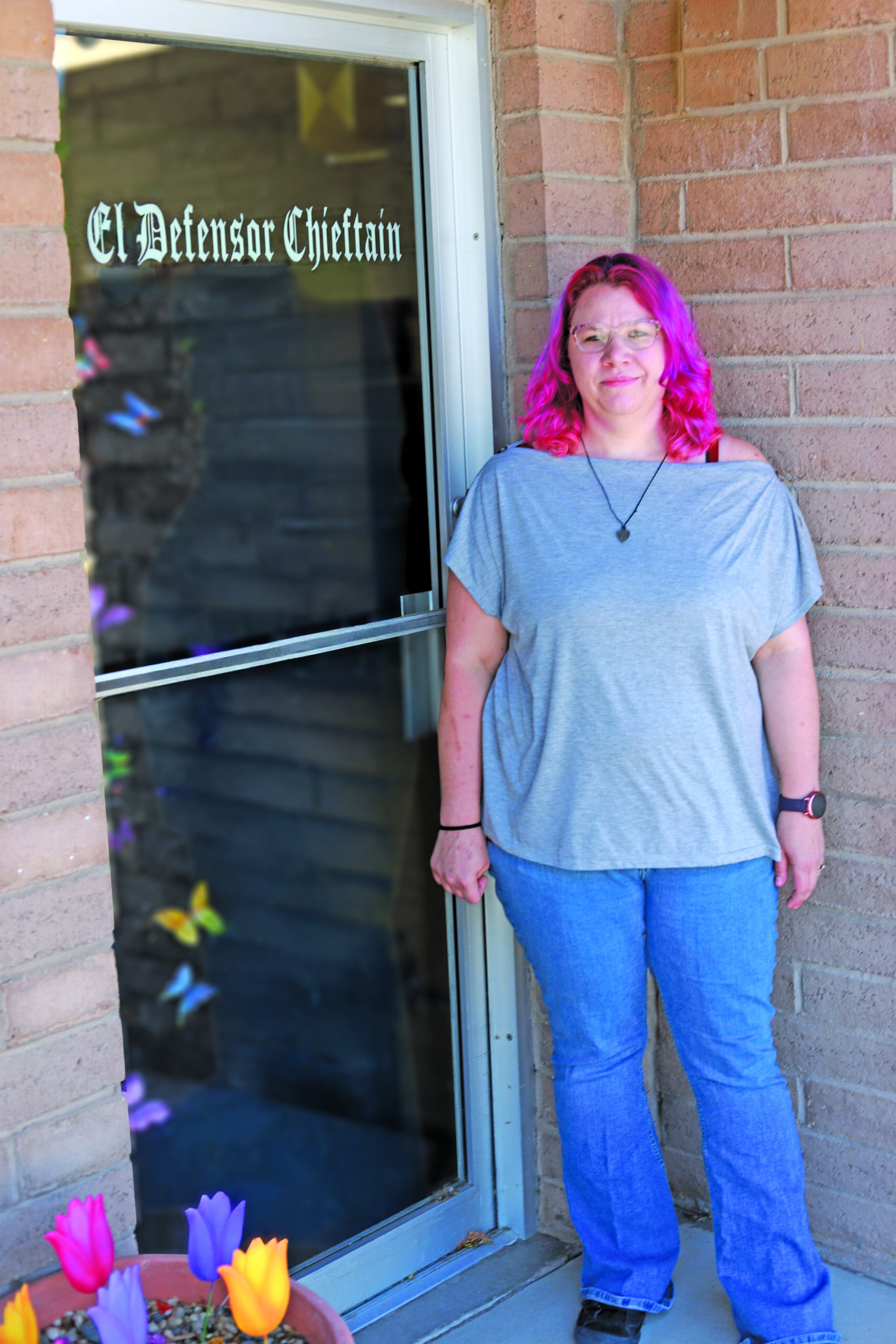Graduate student earns fellowship to bolster local news in New Mexico
Western New Mexico University graduate student Regina Barnett (BS ’23) has been selected for a prestigious New Mexico Local News Fund [NMLN] Fellowship. The fellowship provides Barnett with a salaried position at Soccoro’s El Defensor Chieftain newspaper while she continues her coursework toward a graduate degree in Interdisciplinary Studies. The NMLN Fund is a nonprofit […]
WNMU Student Regent Champions Community Support and Student Voices
Keana Huerta, Student Regent of Western New Mexico University, is on a mission to ignite a deeper connection between the college, its students, and the broader community. Unanimously voted into the position by the New Mexico State Senate, Huerta is focusing her efforts on fostering a campus environment where every student feels the same excitement […]
WNMU Named Athletic Training Staff of the Year by Lone Star Conference
By Josh Brown Western New Mexico University’s athletic training staff has been selected as the 2024–25 Lone Star Conference Athletic Training Staff of the Year among football-playing institutions. It is the program’s second recognition in the past three seasons, having also earned the honor in 2022–23. The Mustang staff is led by Head Athletic Trainer […]
Board of Regents Move Forward with Presidential Search, Address December 2024 Actions
The Western New Mexico University (WNMU) Board of Regents held its regular meeting Thursday, July 31, 2025, in person at the J. Cloyd Miller Library on the WNMU Silver City campus. Present were Regents Steven Neville, John V. Wertheim, J. Dean Reed, and Keana Huerta. In his first official report to the board, Interim President […]







